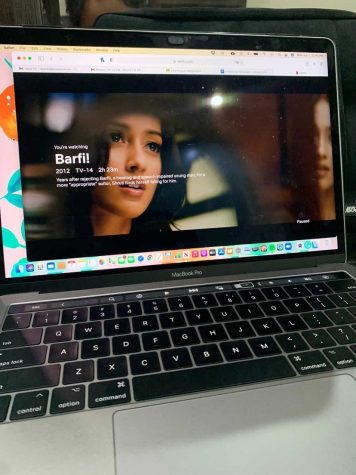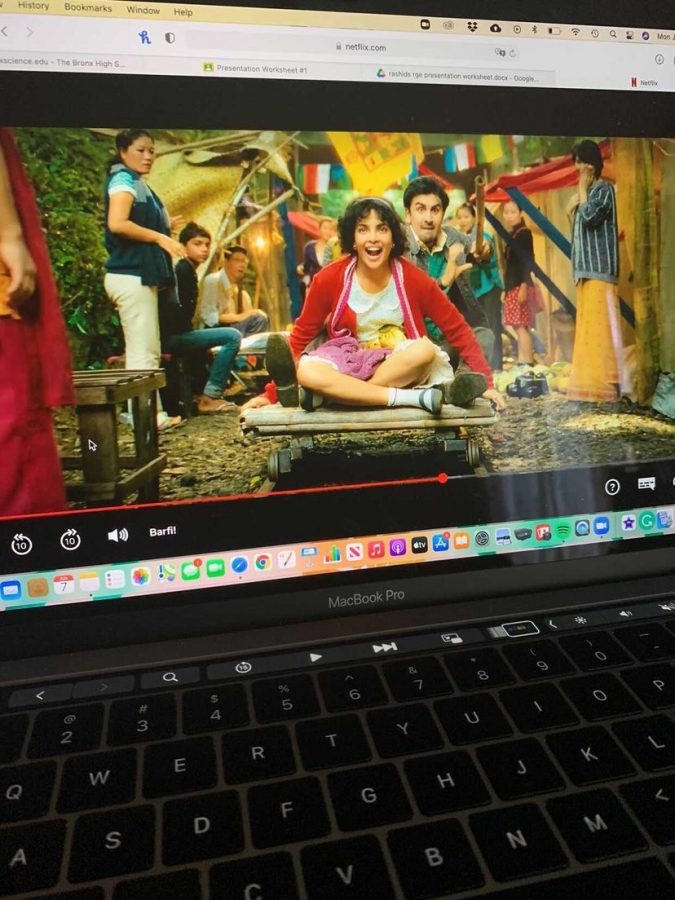Barfi!: A Heartwarming Masterpiece That Everyone Should Watch
If ever there were a time to watch a movie like this that is just so delightfully human in every aspect, it is now, when a global pandemic still holds us in a frightening grip and we need to be effortlessly swept off our feet into a world of magic and warmth.
Ranbir Kapoor stars as Barfi and Priyanka Chopra stars as Jhilmil in the film ‘Barfi!’
It has already been over fifteen months since the world came under the grip of a global Coronavirus pandemic, and many of us are still using this time to watch movies — old and new — in order to deal with the boredom and, frankly, the loneliness of isolation. Even as we begin to take tentative steps to reintegrate into society with the aid of vaccines, for many of us still caught in the strange haze of a year spent in quarantine, the idea of continuing to live like this is just as anxiety-inducing as the thought of “returning to normal.” As we struggle to find a balance between the two without being overwhelmed, there is no better movie to disappear into than Barfi! to remind ourselves to slow down and to escape into a rose-tinted world filled with toy trains, picturesque streets, and fireflies caught in shimmering soap bubbles and search for the same magic in our everyday lives. Here is why you need to add Barfi! to your list of movies to watch this year.
Set in the breathtaking hill-station of Darjeeling, the film unfolds in the early 1970s and centers around our deaf protagonist, Murphy — or as he fondly calls himself, Barfi. Constantly on the run from a small-town police officer for minor misdemeanors, his life is marked by his carefree nature and happy-go-lucky attitude. He immediately falls for the doe-eyed and graceful Shruti, who arrives at the town as a tourist just three months before she is due to get married. Although she is also smitten with Barfi, she ultimately leaves him to marry her fiancé in following her mother’s advice. Feeling heartbroken and lost, his life finds new meaning when he suddenly has to arrange a huge sum of money for his father’s surgery, and soon rekindles a bond with his childhood friend Jhilmil, the autistic daughter of a wealthy local family.
While Barfi!’s storyline may not be very inventive, the film’s strength lies largely in its simplicity. In telling a simple story without adding unnecessary complications, director Anurag Basu allows the film’s characters, cinematography, and music to instantly absorb the viewer into its world. While relying on a narrative that is unfussy and simple to the core, Basu also skillfully adds multiple layers of emotional complexity to each character — particularly the three leads — and treats them with acute sensitivity and ingenuous compassion.
Take the movie’s namesake, Barfi, for example. Although he cannot hear nor speak, we are never given a chance to bemoan his “deficit.” Whether it is through his Chaplinesque escapades from a portly police officer, his animated attempts to woo Shruti by “plucking” his heart out and laying it beneath her foot, or his firm commitment to putting his friends through a test of unconditional love involving a collapsing streetlamp, he effortlessly captures our hearts through his effervescent spirit and endless energy. Never once does the film fall back on the typical snags that accompany movies that feature characters with disabilities — Barfi is never turned into a stereotype, and nor are we ever urged to feel pity for the trials and tribulations that a disabled person faces. Ranbir Kapoor stuns us in every single frame as the titular Barfi, adding wonderful layers to the characters through his expressions, vibrancy, poignancy, and innocent charm.
Priyanka Chopra is absolutely brilliant in her portrayal of Jhilmil, successfully escaping the typical pitfalls of playing an autistic character. While reading up on recent discussions about autistic representation in film, I have a lot to say about how important it is for the industry to cast autistic actors in autistic roles. Notwithstanding my personal stance on the matter, Jhilmil never feels like a caricature, as Chopra brings so much heart and integrity into her role through her expressive mannerisms, nuances in body language, and heartwarmingly ingenuous personality. She arguably gives the best performance of her career in her role as Jhilmil: one glance at the way she intertwines her pinky with Barfi before falling asleep at night or the way she presses her forehead against Barfi’s as a show of affection, and you cannot help but fall in love with her. And Ileana D’Cruz ever so gracefully brings Shruti to life. Her character is one of subtle complexity — simple yet dedicated, hesitant yet brave, a daydreamer yet a realist. D’Cruz delivers it all with so much conviction and poise, beautifully conveying love and heartbreak, joy and pain with meaningful glances and gentle smiles.

One cannot praise this film enough without mentioning its remarkable cinematography. With sweeping shots that capture the fairytale-like charm of Darjeeling and the old-fashioned landscapes of Calcutta, Barfi! is visually ravishing. Every frame feels like a painting, enhancing the beauty of the film’s story even more with picturesque splendor. The cherry on top is the magic spun by Pritam’s music. The narrative is laced with a selection of delightful melodies — the background score not only helps move the story forward, but functions as a charming soundscape that often lends support to its silences.
When interviewed by The Hollywood Reporter, director Basu mentioned, “I realized we can find happiness in the smallest of things in daily life but we normally don’t see that as we are so driven with our ambitions. We have forgotten selfless love. So that was the idea behind the film that you can find happiness in the small things of life. And people with disabilities can also find this happiness while so-called normal people often miss this aspect.” His sentiments reveal what I believe is the true beauty of this film — etched with the compassion and radiance of a life well-lived and well-loved, Barfi! is a celebration of life. It is about living each day of your life to the fullest, finding magic in the mundane, giving selfless happiness, sharing kindness, and feeling love — love that is not defined by what society deems is “normal” and “abnormal,” love that is not confined within society’s perimeter fence dividing those that are “able” from those that are “disabled.” It is a love story, as much as it is a story about love. It is also about appreciating the obstacles that we inevitably encounter as we make our way through the long and winding passage of life, and finding something to love about the pain that we experience as well.
The fact that Barfi! is able to celebrate life so tenderly and insightfully — by finding priceless value in life’s simple moments while encompassing its challenging roadblocks — is what makes it a modern masterpiece. It is just so human in every aspect, which is especially comforting during a time in which the entire world is still on edge. As Shruti puts it best in the film, “Even a bowl of water is enough for ships to sail in, even paper birds can take flight.”
So do yourself a favor and watch Barfi!vFeel it, soak it in, and let it touch your heart. It is pure cinematic delight, and leaves you with a tingling warmth and the much-needed reminder that the majesty of the universe is hidden in the pocket-sized moments — that all it takes is a little bit of courage and a gentle push to fall in love with the mundane.
The fact that Barfi! is able to celebrate life so tenderly and insightfully — by finding priceless value in life’s simple moments while encompassing its challenging roadblocks — is what makes it a modern masterpiece.
Nadia Sultana is a Graphic Designer for ‘The Observatory’ yearbook. In school, Nadia is a member of the Speech and Debate Team, and some of the subjects...

